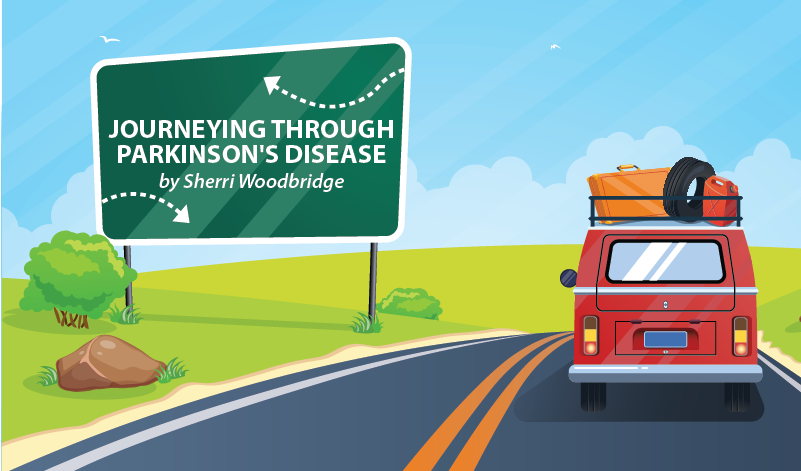Advice for Newly Diagnosed: Exercise. Never Give Up. Exercise.
Written by |

Recently, a large group of people with Parkinson’s were asked in a private Facebook support group to give advice to others recently diagnosed with the disease. Of more than 200 responses, the overwhelming response was: “Exercise! Keep moving!”
But that wasn’t all. Other advice was freely given. What struck me was that it’s easy to give advice, but how does one follow through? How does a comment like “Live your life” help someone?
Sometimes, you have to explain or show the person with Parkinson’s disease what “Live your life” looks like. And it won’t look the same for someone else.
How do you:
- Live your life? One day at a time. Sometimes one moment at a time, without focusing on the “what-ifs.” Focusing on your fears or the concerns that PD can create takes your focus off the present. And the present is where the living occurs. So, if you’re still mobile, get that dog to take you for a walk, and if you’re not, put on some upbeat music and read something positive.
- Educate yourself? Everyone googles, but that can be a scary start to gathering information on Parkinson’s disease. Start with specific websites such as the Michael J. Fox Foundation, which in my opinion is one of the best.
- Find a support group? Either locally or on the internet. There are several on Facebook that are closed (private) groups, meaning they don’t allow people without PD in. You have to be an accepted member to see what’s posted. Type in Parkinson’s disease in the search bar and you’ll get a list of PD groups. Local support groups in your area can be found by visiting the Parkinson’s Foundation website. It’s invaluable to be able to connect with people on the same or similar journeys and trying to find their way. It helps to remember that you are not alone.
- Find a movement disorder specialist (MDS)? Some towns just don’t have one, so you have to determine how far you’re willing to travel. Anyone with PD will tell you that a good MDS is worth their weight in gold. But if you’re unable to find one near you, a good neurologist can help just about as well. Some tips: Don’t settle with the first diagnosis. Always get a second. Don’t settle with the closest neurologist or MDS. Drive the hour or two, or three, if you have to. It’s worth every mile. Ask members of your support group who they go to.
- Exercise? This suggestion regarding advice to give a PD newbie was overwhelmingly at the top of the list of 200 PDers surveyed! Start by discussing exercise with your doctor. We are all in different physical shape, and what may be beneficial for one may be a bone-breaker for another. I think one of the overall safest things you can do is walk. Keep your eyes focused in front of you, so you’ll see any cracks or bumps that may trigger a fall. Take your well-behaved dog to help steady you, or take a walking stick for balance. Whatever you choose to do — walking, cycling, boxing, dancing, tai chi — just do it! The earlier you start exercising, the better off you’ll be. Exercise like your life depends on it, because it does. Move it. Move it. Move it.
- Talk about it? You can start talking with a close friend, and perhaps you’ll become so well-educated and experienced that you’ll be talking to hundreds at a time! This is where support groups shine, because you can talk about your experience without judgment, get new insights, not feel isolated or alone, and be surrounded by others who really understand.
Other pieces of advice and wisdom:
- Take your meds on time.
- Cry when you need to.
- Everyone’s journey is different.
- Exercise.
- It’s OK to ask for help!
- Give yourself time to get your head around the diagnosis. Allow yourself time to grieve.
- Don’t overthink having PD. Don’t dwell on it.
- Keep a sense of humor. If you’ve never had one, it’s time to get one.
- Try to stay away from stress. Stress makes PD symptoms worse. Eliminate what you can out of your life.
- The more you stress, the worse the symptoms are.
- Discipline yourself. Get what information you can on PD and then make a plan. Establish a routine on taking your meds on time. Keep a log/journal to take to your appointments.
- Pray.
- Exercise.
- Stay away from Dr. Google.
- Exercise your brain as well as your body. Word games. Number games. Play games with your grandchildren or your kids or friends.
- Don’t let this be a death sentence.
- Never, never, never, never, never give up.
And exercise.
***
Note: Parkinson’s News Today is strictly a news and information website about the disease. It does not provide medical advice, diagnosis or treatment. This content is not intended to be a substitute for professional medical advice, diagnosis, or treatment. Always seek the advice of your physician or another qualified health provider with any questions you may have regarding a medical condition. Never disregard professional medical advice or delay in seeking it because of something you have read on this website. The opinions expressed in this column are not those of Parkinson’s News Today or its parent company, Bionews Services, and are intended to spark discussion about issues pertaining to Parkinson’s Disease.







Denise Gibsoin
I really appreciate the helpful articles. Especially the one I just read about exercise. I’ve been walking for several years before I was diagnosed with PD and I truly believe that excercise has slowed the progression. Keep the updates coming. Thanks
Sherri Woodbridge
Thank you, Denise!